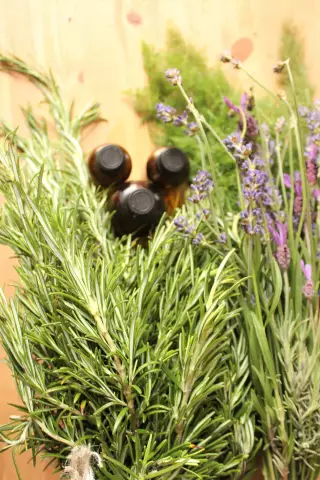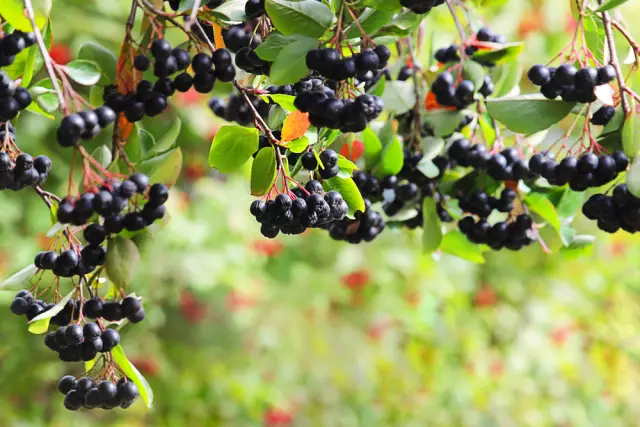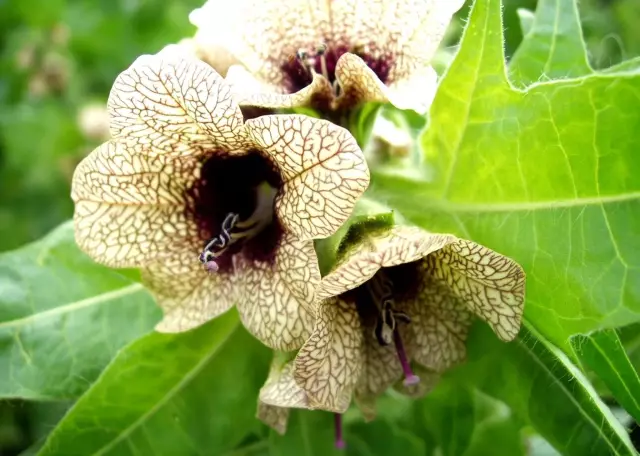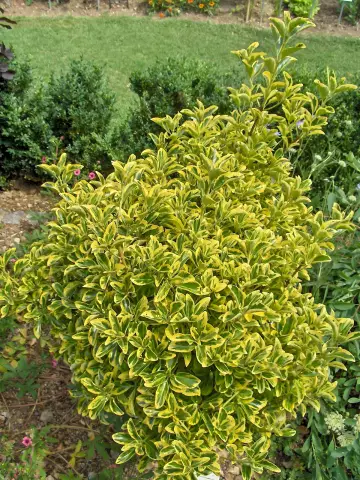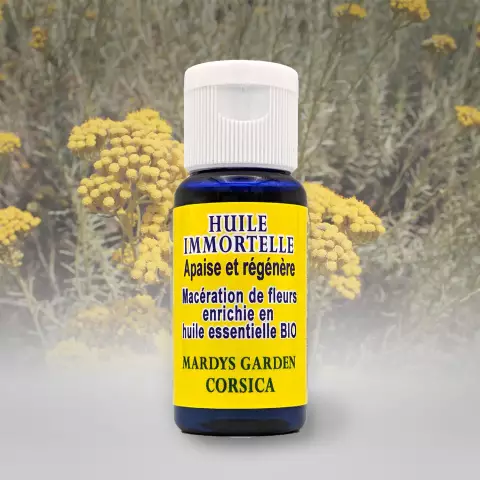- Author Rachel Wainwright wainwright@abchealthonline.com.
- Public 2023-12-15 07:39.
- Last modified 2025-11-02 20:14.
Aromatherapy

Aromatherapy is a type of alternative medicine, which is based on the effect on the body of aromatic substances, which are usually found in plants.
Essential oils used in aromatherapy contain biologically active substances in their most concentrated form. Their chemical composition includes aldehydes, alcohols, terpenes, ketones, phenols, ethers and esters, sesquiterpenes.
Aromatherapy has been known for a long time and has been widely used in almost all countries. Ancient Vedic hymns describe the natural scent of flowers (aromatherapy) as bringing health and relieving anxiety and sorrow.
The use of essential oils in aromatherapy
According to many naturopathic doctors, using essential oils, aromatherapy can weaken and even completely neutralize the influence of a polluted environment, as well as restore the emotional background.
The uses of natural flower oils in aromatherapy are extensive. They are used by:
- For acupressure or daily general massage. Naturopathic doctors believe that massage with aromatic oils restores the immune system. Aromatherapy launches its own healing mechanisms by increasing lymphatic and blood circulation. For massage, as a rule, 1-2% solution of essential oil in neutral oil is used. Massage oil for face and body can be used as a base for daily makeup;
- For inhalations, which are recognized not only by alternative, but also by traditional medicine. Aromatherapy is an excellent treatment for colds, especially respiratory problems. Also, this method is used in cosmetology to cleanse the skin of the face;
- For compresses. Home aromatherapy can help relieve headaches, bruises and sprains. To prepare the compress, you should wet a gauze napkin in a glass of warm water with a few drops (up to five) of essential oil, squeeze and put on a sore spot, after which the compress is covered with plastic wrap and kept until it cools completely;
- For baths. Aromatherapy helps to completely relax muscles and restore the emotional background. Usually, to prepare baths with aromatic oils, 5-10 drops of essential oil are dissolved in one tablespoon of milk or honey and added to a warm bath;
- For foot baths that help relieve fatigue after strenuous physical activity or an emotionally stressful day. To prepare it, hot water with 4-6 drops of oils is poured into the basin;
- For aromatization of premises with the help of an evaporator (fragrance), which helps to prevent many diseases and improves mood.
Ayurvedic doctors believe that aromatherapy affects the body like a taste:
- Sweet (rose, sandalwood, cinnamon) - cools, soothes;
- Sour (lemon wormwood) - soothes, warms;
- Salty (smell of the sea, algae) - improves appetite, warms;
- Spicy (smell of cardamom, black and red pepper) - excites, warms;
- Bitter (smell of calamus, almonds) - soothes, cools;
- Astringent (smell of quince, walnut, green apples) - encourages, cools.
Aromatherapy in cosmetology
Aromatherapy is widely used in cosmetology, being an excellent way of skin care and effective completion of cosmetic procedures. Even at home, aromatherapy helps to solve various skin problems associated with both diseases and age.

The use of aromatherapy is effective due to the fact that essential oils provide a deep cleansing effect and have antimycotic, antibacterial and antiviral effects, and also activate the effect of cosmetic preparations.
Aromatic oils easily penetrate the skin and quickly enter the systemic circulation, facilitating the penetration of many active ingredients found in cosmetics.
The main oils used in aromatherapy for cosmetic purposes are orange, bergamot, oregano, nioli, cajaput, lavender, frankincense, myrrh, lemon, patchouli, rosemary, juniper, tea tree, thyme, eucalyptus.
Almost all aromatic oils are powerful geroprotectors and slow down the aging process of skin cells.
Aromatherapy is widely used not only for skin care, but also for hair, for which it is recommended to regularly carry out:
- Nourishing aroma massage, which is carried out when caring for normal hair 1-2 times a week, and when caring for problem hair - every other day;
- Aroma rinse, which is recommended after shampooing.
You can also enrich cosmetics with various essential oils.
Home aromatherapy can be used:
- For the care of normal and dry hair - with essential oils of orange, rose, ylang-ylang, geranium, jasmine, incense, lavender, mandarin, neroli, myrrh, santalum, chamomile;
- For oily hair care - with essential oils of verbena, clove, geranium, ginger, cypress, patchouli, rose, pine, tea tree, eucalyptus;
- To eliminate dandruff - with essential oils of orange, jasmine, geranium, lavender, rose, chamomile;
- To strengthen hair in case of hair loss - with essential oils of calamus, ginger, cedar, cypress, lavender, chamomile, pine, clary sage;
- To restore elasticity, shine, brightness and tone of hair - with essential oils of jasmine, myrrh, patchouli.
Effect of oils in aromatherapy
Depending on the purpose, different aromatherapy oils are used based on their properties and effects. Thus, essential oils in aromatherapy have the following effects:
- Refreshing - essential oils of fir, spearmint, peppermint, lavender, mandarin, vetiver, lemon and orange;
- Invigorating, performance-enhancing - jasmine and lemon oil;
- Antidepressant and anti-stress oil of bergamot, galbanum, jasmine, geranium, bigardia, coriander, mimosa, lavender and patchouli;
- Cleansing oil - lavender, geranium, rose, nutmeg, lemongrass, orange, sage, rosemary, calamus and lemon oil;
- Relaxing and soothing - basil, immortelle, ylang-ylang, galbanum, chamomile, lavender, lemon balm, mimosa, bigardia, orange, rose, sandalwood, vanilla and cedar oil;
- Stimulating - nutmeg, coriander, peppermint, clove, verbena, juniper, rosemary, hyssop and lemon oil;
- Pain reliever - grapefruit oil;
- Fortifying - essential oils of angelica, lemon balm, lavender, peppermint, nutmeg, lemon, rosemary, cedar, verbena, vetiver and wormwood.
Contraindications for the use of aromatherapy
Aroma oils should only be used externally. Before you start using aromatherapy, essential oils should be tested for individual tolerance.
Against the background of serious illnesses, for example, epilepsy, as well as during pregnancy, before using aromatherapy, you should consult a doctor, since oils such as sage, laurel and rosemary cannot be used in these cases.
Found a mistake in the text? Select it and press Ctrl + Enter.

